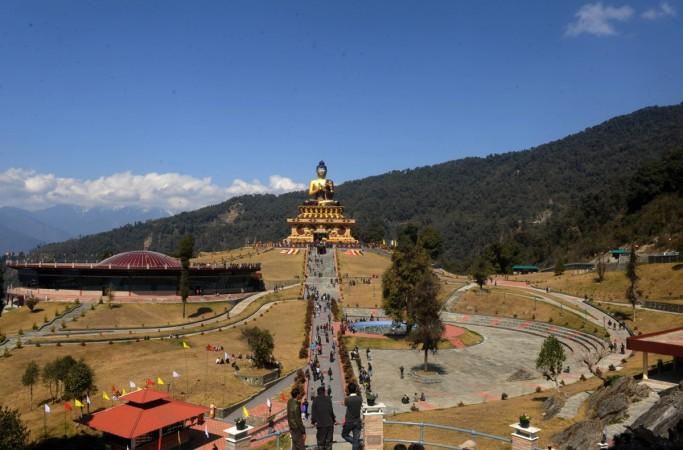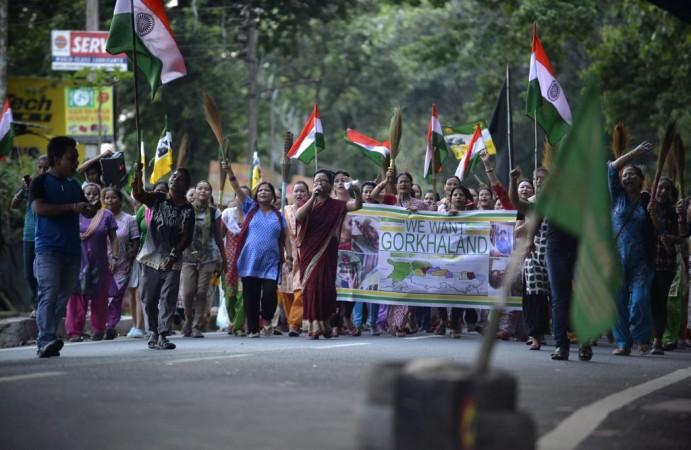
While North Bengal has been facing a huge shutdown for the past three months with the Gorkhaland agitation even turning violent at times, many shops reopened in Darjeeling on Wednesday, September 6. For the region, things do not look too bright yet, but its neighbour Sikkim isn't having it easy either, even though it doesn't have to do much with the agitation.
Business in Sikkim has slowed down in a big way, even though it is that time of the year when tourists flock to the state not just for sight-seeing, but also to be a part of the state biggest festival Dashain.
A taxi-driver from Gangtok Suraj Biswakarma spoke to the Times of India about how tepid the business has been in these months and said that this time of the year usually brings in good earnings. But this year, he had just made about Rs 25,000. "Our biggest festival (Dashain) is around the corner. Every year I visit my in-laws with gifts. I don't know what my family and I will do this time," he told the daily.
Sikkim is a landlocked state with China to the north and West Bengal to the south. It often takes a hit from any agitation in West Bengal as it depends on the state – specially Siliguri – for numerous resources. Even though Sikkim Chief Minister Pawan Kumar Chamling had earlier said that the state supports the Gorkhaland demand, he had said that Sikkim has faced a huge economic loss amounting up to Rs 60,000 crore due to the bandh and agitation.
While tourism remains the most affected sector, there are numerous other industries reeling under loss. Sikkim's development has slowed down as we depend on Siliguri for all our resources," said former tourism minister KT Gyaltsen, who now is the legal advisor to the ruling Sikkim Democratic Front party.
"The construction industry is affected. We have children studying in Darjeeling schools. People have taken a lot of loans and many of our youth are dependent on the tourism industry. It (the shutdown) has hit our economy."
Chewang Zangpo, tourism secretary of the state also explained that Sikkim saw almost 12 lakh tourists from January-June 2017, but the numbers have nosedived in the last few months. "Sikkim has been grossly affected. Although the national highway was always open, many countries started issuing advisories cautioning their citizens to avoid our state," he told TOI.

Meanwhile, the situation in Darjeeling still seems tense. Even though shops and markets reopened in Mirik, Kurseong, and parts of Darjeeling, the Gorkha Janmukti Morcha has been urging the people to keep up with the fight. However, the party itself has been having quite some issues with GJM chief Bimal Gurung and former chief coordinator Binay Tamang having differences. Tamang has now been removed from the post.
Tamang had earlier announced that the ongoing shutdown would be relaxed for 12 days from September 1. However, Gurung opposed the relaxation and said that "traitors" could be joining hands with the West Bengal government to foil the stir for a separate state.
"For the last three months we have been fighting for the prestige of our community. But I got the signal for the last few days that some of our leaders have joined hands with the Bengal government to fail our long standing movement for Gorkhaland," IANS quoted Gurung as saying.

















